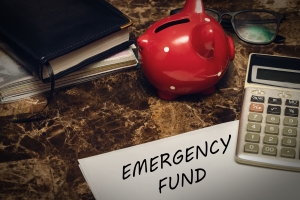...
6 Helpful Tactics to Thrive Financially in 2022
The New Year brings an opportunity to reflect on the past year and to set new goals for the year ahead. Were you able to achieve your goals for the previous year? Looking at your current circumstance, do you think there are aspects of your life that need improvement? Answering these questions will give you a clear picture of where to focus and how you need to approach the New Year. If you are considering setting physical and mental wellness resolutions, consider adding financial wellness resolutions as well. On the other hand, if you never had a clear plan for the year, this is the time to plan because a sailor without a compass will always get lost.
Planning for the New Year can be a very tedious exercise and you might lose interest and leave your life to chance especially where the previous year did not gone as planned. You need to approach the New Year with high optimism and with the hope of getting the best out of it. A brand-new year is a great opportunity to build a new habit as well as improve upon old ones. You may want to buy a car or move into your own house. Regardless of your goals for the year, you will need a very well thought through plan and strategy to sail through.
One area you cannot ignore for the coming year is having a good financial plan. A good financial plan will ensure that you have financial security and peace of mind. This will mean you will have enough funds to cover your lifestyle, emergencies and future financial goals. Here are a few strategies to help you thrive financially in 2022.
I. Set Financial Goals
The first step you need to take is to set financial goals. In setting a financial goal, you need to assess yourself to know where you are. To set a concrete financial goal, you will need to answer honestly the 3 questions below;
- Where am I now (current financial situation);
- Where do I want to be (financial goal); and
- How do I get there (action steps).
II. Live within Your Means
“Living within your means” is simply having your expenditure for each month be less than or at least equal to your income for the month. Remember, you are not in competition with anyone, and you do not need to impress anyone. The best way to live within your means is to set a budget. It is important to note that having a budget alone is not enough. To ensure you succeed, you stick to the budget you set.
III. Pay off your Debt
To achieve your financial goals, you will need to be very discipline about managing your debt, if any. Try to pay off your debt by first getting rid of smaller debts. This will motivate you to pay off larger ones. Avoid taking on new debt if it is not necessary.
IV. Save and Invest
Once you know your income and you have reviewed your spending habits, it should be clear and easier for you to know how much to set aside every month to meet your future needs. The best strategy you can adopt for the New Year is to pay yourself first any time you earn income.
There are various rule of thumbs you can adopt to help you save and invest but the 10 – 90 strategy is recommended. That is, save and invest 10% of your monthly income and spend the remaining 90% on your needs and wants. Try as much as possible to automate your savings and investment by simply setting a standing order on your bank account or mobile money account.
V. Plan for a Comfortable Retirement
Retirement is a period you cease to be actively employed. In retirement your savings throughout your working life should be able to cater for you. You need to be able to estimate the amount of money you will need during retirement. Apart from the mandatory schemes, you can enhance your retirement benefits by opting for a voluntary personal pension plan. In 2022, take the necessary steps to save towards a comfortable retirement. This will improve your overall financial wellness.
VI. Stay Organized
Setting goals and having a financial plan is good but your efforts will be in vain if you are unable to stay on track. You will need time, consistency and discipline to achieve your goals. Try as much as possible to evaluate your financial plan at least every quarter to ensure you stay on track.
Our financial planners are available to assist you to design and implement a good financial plan. Connect with an Axis Pension Advisor to discuss your financial goals for 2022 and more.
---
Axis Pension Trust partners workers throughout their retirement planning journey to ensure they are on track to achieve a dignified retirement. For more information on our services or general enquiries, send an email to This email address is being protected from spambots. You need JavaScript enabled to view it. or call 030 273 8555.
5 Vital Tips For Building A Personal Emergency Fund
The Coronavirus Pandemic continues to threaten economic growth, business continuity and the livelihood of individuals across the globe. The pandemic has exposed the fact that most of us live from hand to mouth with nothing or very little to fall back on when an unexpected event happens.The situation calls for each individual to review his or her financial plan and employ strategies to survive this season and thrive afterwards. In our various engagements, reference has been made to the concept of an Emergency fund as a viable option to make up for income short falls. In addition to reviewing your budget, an emergency fund could be a vital part of your COVID-19 response strategy, assuming you already have one.
An emergency fund is simply money or highly liquid assets you have set aside to cushion you against life’s unexpected events such as the loss of a job, medical emergencies, a major repair to home or car. Having an emergency fund should be a key part of an individual’s financial plan. It ensures financial stability and peace of mind during turbulent times. An emergency fund also safeguards future security by helping avoid tapping into your long term investment (e.g. retirement fund) to address emergency needs. Here are 5 tips to help you build your emergency fund during and after the COVID-19 pandemic;
I. Stick to Your Budget: Make a budget and live by it. As discussed in an earlier article, list all your monthly income, discretionary and non-discretionary expenses. Cut out or reduce unnecessary expenses to make room for savings. This will also help you determine your monthly living expenses.
II. Assess your need: Determine how much you need to save in your emergency fund. The general rule for building an emergency fund is to set aside 3 to 6 months of your living expenses. However, the ideal amount is dependent on your personal circumstances .i.e. job security, number of household income, nature of employment, income stability, medical condition etc. If you are more likely to have emergencies, you may need to set aside more than 6 months of your living expenses. For an individual who is less susceptible, 3 months or less may be fine.
III. Set a periodic savings goal: Based on your level of need, plan to save a specific amount of your weekly/monthly/quarterly income towards your emergency fund. However, if your income is irregular, try to set aside as much as you can as soon as possible. Regardless of the regularity of your income, saving should be carried out with the total amount needed in mind.
IV. Automate your savings: Set up a savings account or money market mutual fund account. The account should be easily accessible at no cost and should be separate from a bank account you use daily (e.g. Current account) so you are not tempted to dip into your reserves. Automate your savings into your emergency fund account using standing orders or direct debits. You may speed up your savings by saving windfalls, 'left-overs' and proceeds from selling something you do not need.
V. Review your plan: Financial planning is an ongoing process. It is important to review your progress towards building your emergency fund regularly and adjust if necessary e.g. if your circumstances or living expenses change (marriage, childbirth etc.)
Building an emergency fund is one of the first steps towards achieving financial peace of mind. Whether you are able to do so immediately or after the pandemic is over, adding an emergency fund to the list of your financial goals is a must. It is important not to save above what you will need at the detriment of achieving other financial goals. Once you are able to build your emergency fund to the level you need, channel your savings towards other financial goals such as achieving a dignified retirement.
---
Axis Pension Trust partners workers throughout their retirement planning journey to ensure they are on track to achieve a dignified retirement. For more information on our services or general enquiries, send an email to This email address is being protected from spambots. You need JavaScript enabled to view it. or call 030 273 8555.












